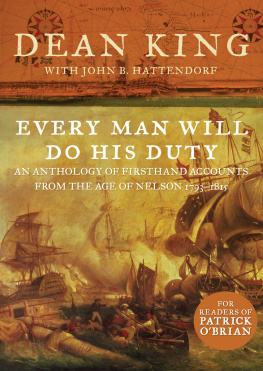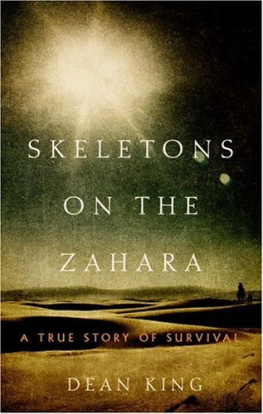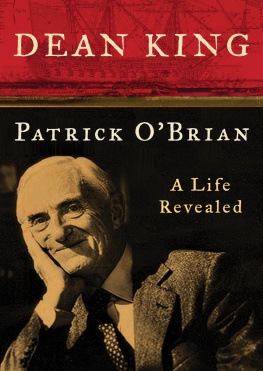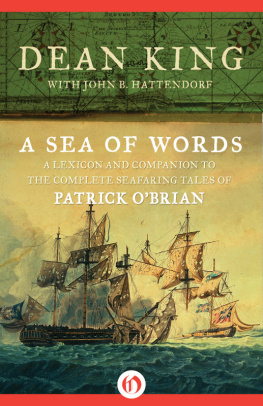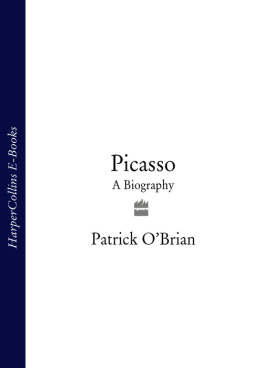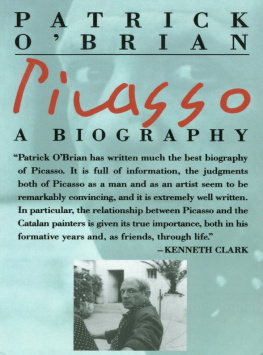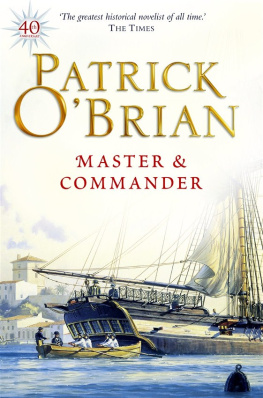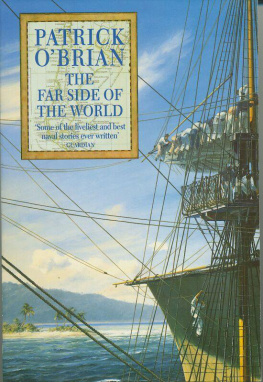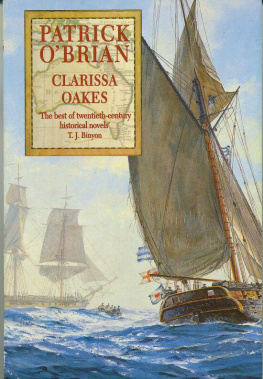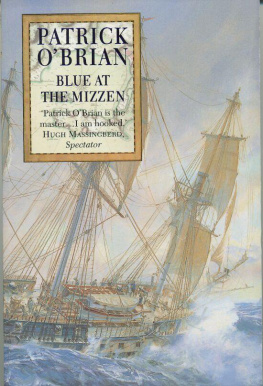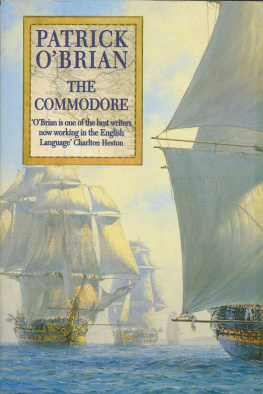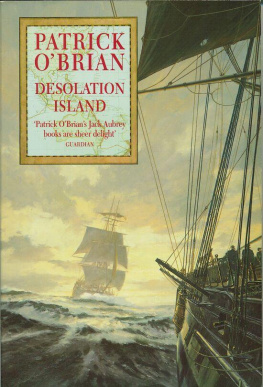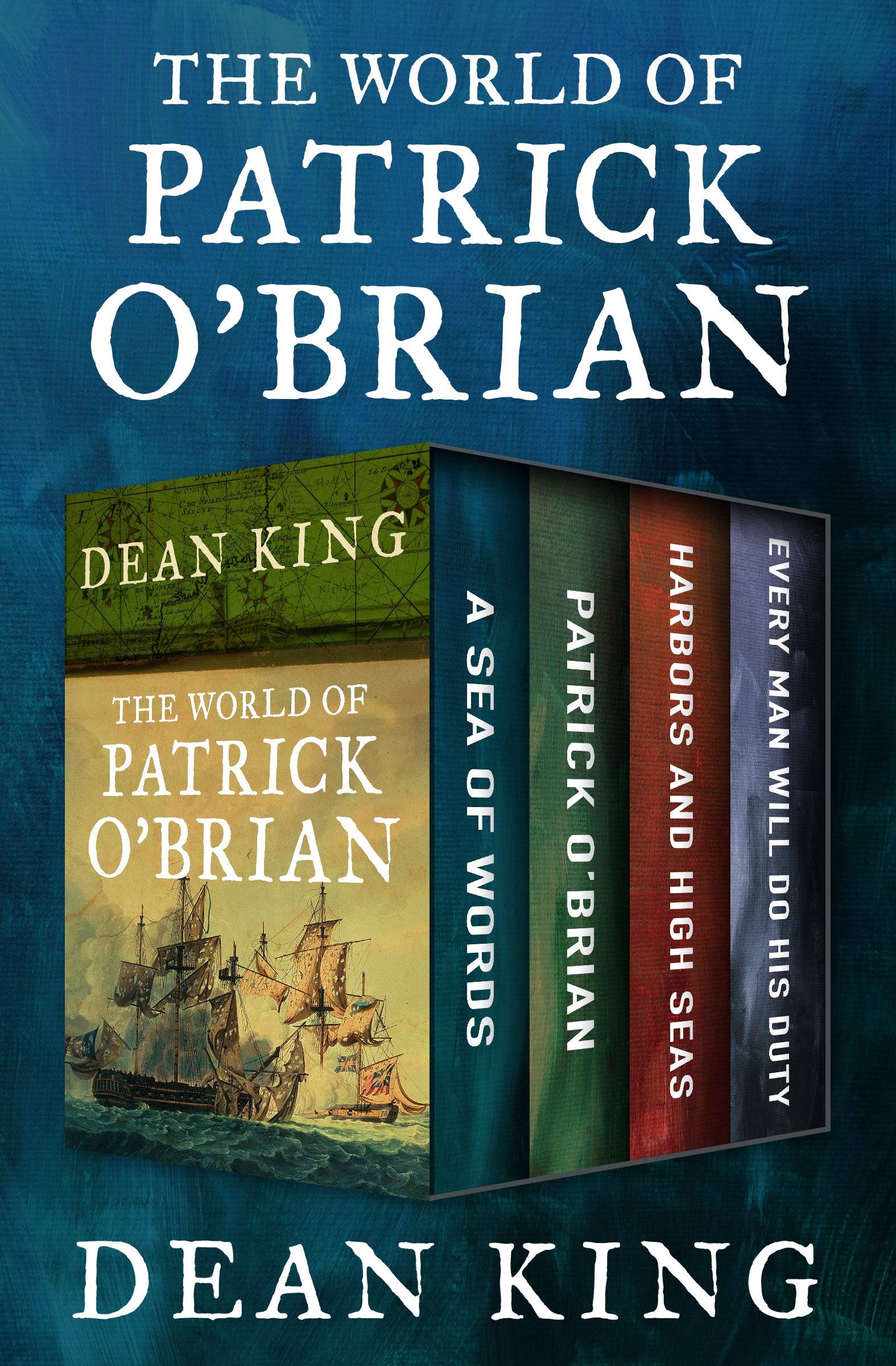The World of Patrick OBrian
A Sea of Words, A Life Revealed, Harbors and High Seas, and Every Man Will Do His Duty
Dean King

Contents
A Sea of Words
A Lexicon and Companion to the Complete Seafaring Tales of Patrick OBrian
A Note on the Third Edition
All men owe honor to the poetshonor and awe for they are dearest to the Muse who puts upon their lips the ways of life.
Homer, The Odyssey, book 8
I WOULD LIKE TO dedicate this final edition of A Sea of Words to Patrick OBrian (1914-2000), creator of the Aubrey-Maturin novel series. I have added many new entries for The Hundred Days (HarperCollins, U.K.; W. W. Norton, U.S.A., 1998) and Blue at the Mizzen (1999). It is for the better understanding and enjoyment of OBrians magnificent epic of the Royal Navy during the age of Napoleon that I wrote this book and Harbors and High Seas.
Macte Virtute, Patrick OBrian.
List of Illustrations
Preface to the Second Edition
The Curiosity That Patrick OBrian Inspires in Us
WHILE WALKING FROM THE village of Buriton to Ashgrove Cottage, Stephen Maturin observes that the Hampshire landscape is ordinary country raised to the highest power. Indeed, the rolling, wooded South Downs of southern England are subtly splendid. But for the OBrian reader, this countryside is raised yet another notch in its appealby the author in the fiction he has set there.
Readers have many reasons to rejoice in the Aubrey-Maturin novels, for Patrick OBrian has the gift not only of raising the ordinary to a higher power but of making the extraordinary human. In his central characters we admire their honor, dignity, skills, and knowledge, and we empathize with their foibles and flaws. In his plots we escape into a world where etiquette and order seem to rule, relishing for instance the formalities of a Navy officers banquetand the inevitable transgression of those formalitiesand where even war has its civilities. And of course OBrian, his sense of humor never curtailed, frequently sends us into fits of laughter.
Of all things we admire, though, the most rewarding is perhaps the curiosity that OBrian inspires in us. For me, these novels have sparked many learning adventures, among them visits to Mystic Seaport, where I saw a capstan turned to a shanty and watched a mainsail unbent, to the Muse de la Marine in Paris, which displays spectacular 15-foot-tall ship models, and to the National Maritime Museum in Greenwich, where the Battle of Trafalgar recurs in a narrated panorama through the stern window of a French first rate. On my way down to Portsmouth for a stroll on the decks of Nelsons Victory (whose round tumblehome greatly increased my appreciation for Maturins shipboarding talents), I even stopped in the village of Buriton.
It is in The Reverse of the Medal that Maturin alights here from the Portsmouth night coach one fine morning for a walk across the fields and through the woods to Ashgrove. I quickly discovered why, in addition to its proximity, he might have paid an extra three shillings to be dropped off in this quaint farming village. The famous historian Edward Gibbon (1737-1794), who lived in a manor house by the pond and across from the Norman rectory, once wrote, No more typical scene of 18th century England could be found. Its still true today.
After eating a full-cooked English breakfast at the Master Robert Inna walkers meal if ever there was oneI visited the villages peaceful flint-wall Norman church. The morning sun glistened on the dew-soaked tombstones as I prepared to strike off over the fields. Soon the sign for the South Downs Way, a national footpath, pointed up a tree-covered cart track, and I took it. As I dodged the deep, muddy ruts of the track, a covey of pheasants burst from a ragged hedge onto a cow pasture.
At the top of the cart track, I reached a lane guarded by two gnarly, silver-barked beech trees whose sagging branches were weighted by the half centuries they had seen. This was a lane that meandered over hills, through forests, and past farms. It was a lane for pleasant walking, and as my goal was to discover what I could about Ashgrove Cottage, a fictional place, I took my time. Like Maturin I was alone, and I did as I pleased. That included savoring ripe blackberries beside the road.
Soon I heard the clopping of horses. Around the bend, on big brown mounts, came four women in field boots and riding caps. Out front a perky, unblinking brunette greeted me with an irrepressible Hello, long on the first syllable. Behind her, side by side, were a sturdy, upright blond and a stout, silver-haired matron, the very countenance of the landed gentry, and bringing up the rear, a plumpish youngster. Surely, I thought, this was the Williams family out for a days ride. As I stifled a sudden desire to ask if they knew of a certain Jack and Sophie Aubrey, it occurred to me how delightful it is to go in search of fact and find fiction.
Eventually I reached Butser Hill, the highest point on the South Downs Way, and, looking south over the rippling Downs, I fancied I could make out Spithead and the Isle of Wight, just as Aubrey could from his observatory. My journey was well rewarded, and I couldnt help but think of Maturins words as he traversed the same countryside: Why do I feel such an intense pleasure, such an intense satisfaction? ... [H]e searched for a convincing reply, but finding none he observed The fact is I do (The Reverse of the Medal, p. 178). Im sure that Maturins profound curiosity and the opportunity to carelessly, purely indulge it were at least part of that intense satisfaction.
Indeed, curiosity seems to be a staple characteristic of OBrian readers. From the comments and inquiries that poured in after the initial publication of A Sea of Words, it became apparent that the book had merely wetted that curiosity. Hence, Harbors and High Seas: An Atlas and Geographical Guide to the Aubrey-Maturin Novels, which explores the routes and the places where OBrian leads his characters, and Every Man Will Do His Duty, an anthology of firsthand accounts from the men who fought the battles. Among them are Thomas Cochranes account of the cruise of the Speedy, upon which much of the action of Master and Commander is based, as well as accounts of the Glorious First of June, the battles of Cape St. Vincent and Trafalgar, and the frigate action between the United States and the Macedonian.
The second edition of A Sea of Words simply attempts to answer many more of the questions generated in reading these thought-provoking novels: What are the marthambles, and is there a historical basis for the chelengk that Aubrey receives from the Grand Turk? Who is Maturins famous patient the Duke of Clarence, and who the remarkable, precocious British prime minister William Pitt the Younger? On which days were honorary salutes required of all British warships, and what precipitated the Gordon Riots?
In this edition you will find many more entries regarding natural history, music, geography, and actions of the Napoleonic wars and the War of 1812. There are entries from The Commodore

